**
Q:** What is your assessment of some of the offensive line's struggles? Do you view them more from a communication standpoint than actually a physical execution standpoint in terms of not making the block versus not even having the call right?
BB: I think we had a lot of communication – or I'd say execution issues on offense. We just didn't execute very well, I'd say, in any part of the game. All the players were involved, all the coaches were involved. We just didn't execute very well. We had mistakes everywhere; multiple mistakes everywhere. You could point to any spot and find some because they were everywhere. We just have to try to correct them today and move on. But I don't think there was any one single thing that I would point to. I think it was an accumulation of a lot of lack of execution plays. That being said, there were a lot of times good things that happened on the play, but one part of the play that was poorly executed and I thought we didn't have much to show for it. But we didn't execute the passing game very well. We didn't execute the running game very well; blocking, passing, catching. It was just – none of it really was very good.
**
Team photographer, David Silverman, offers his best photos from the Patriots-Jets game on Sunday, December 21, 2014.

2009 - Julian Edelman, WR
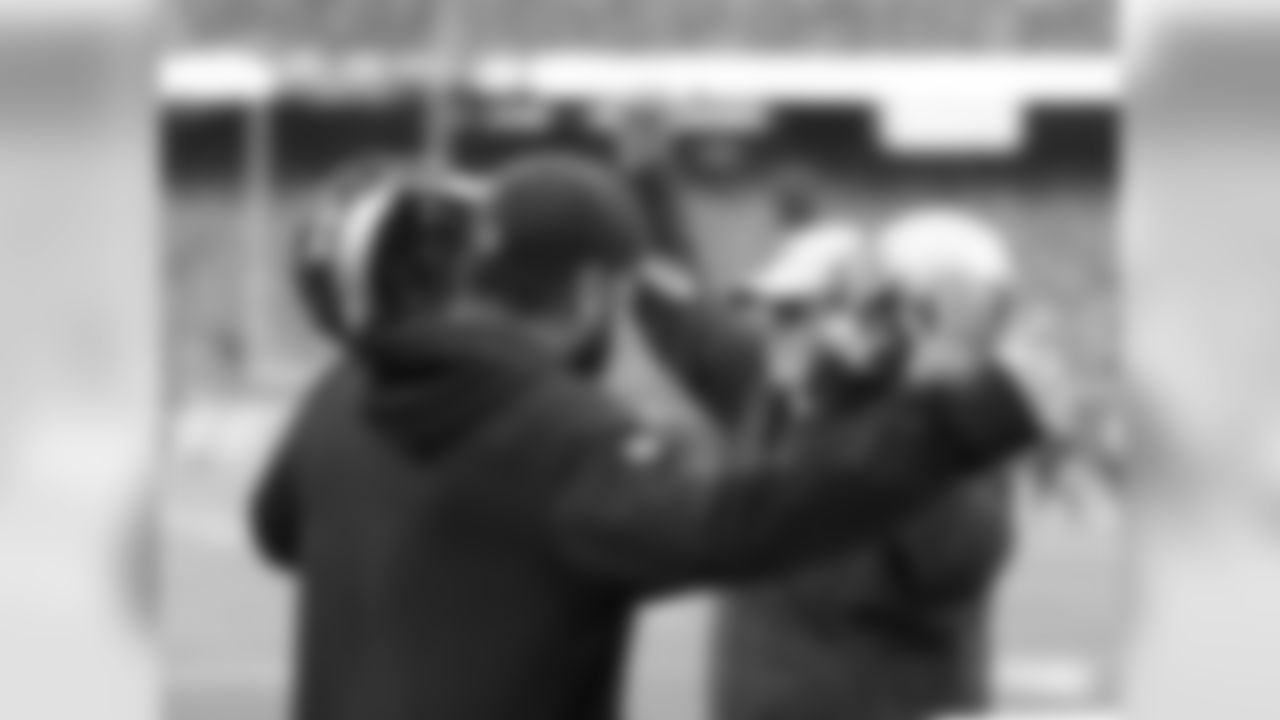
2009 - Sebastian Vollmer, T
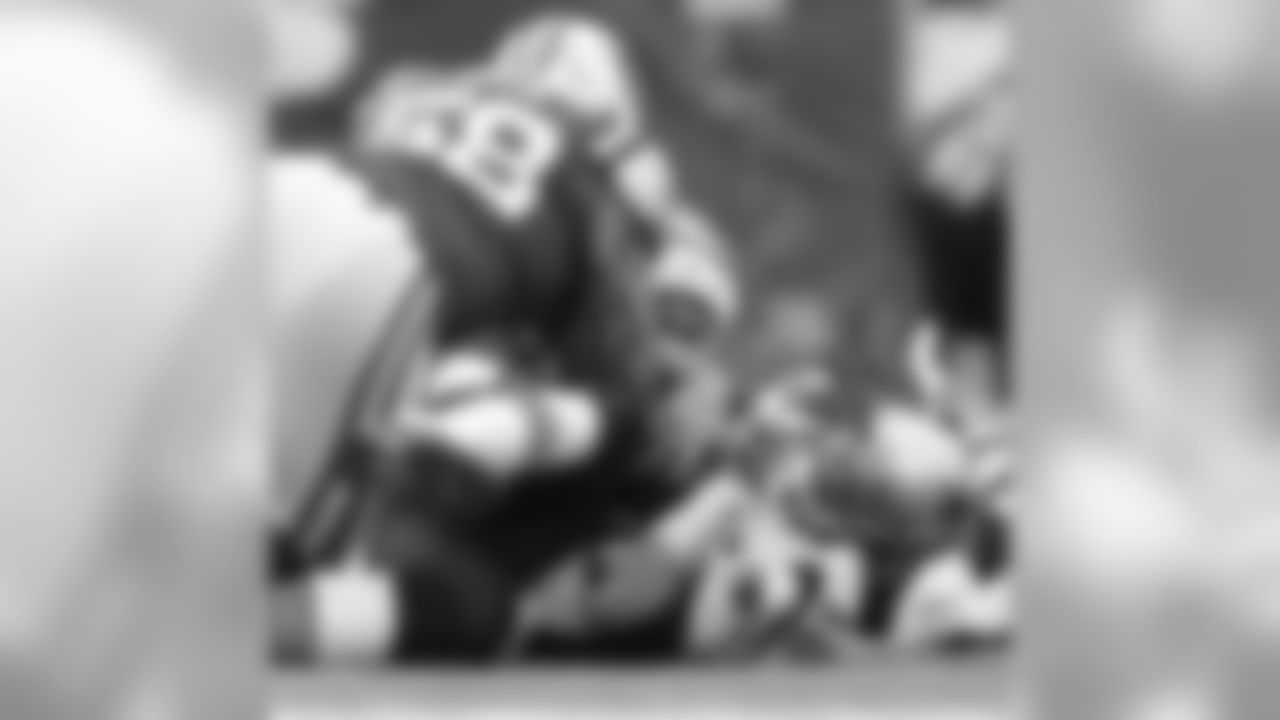
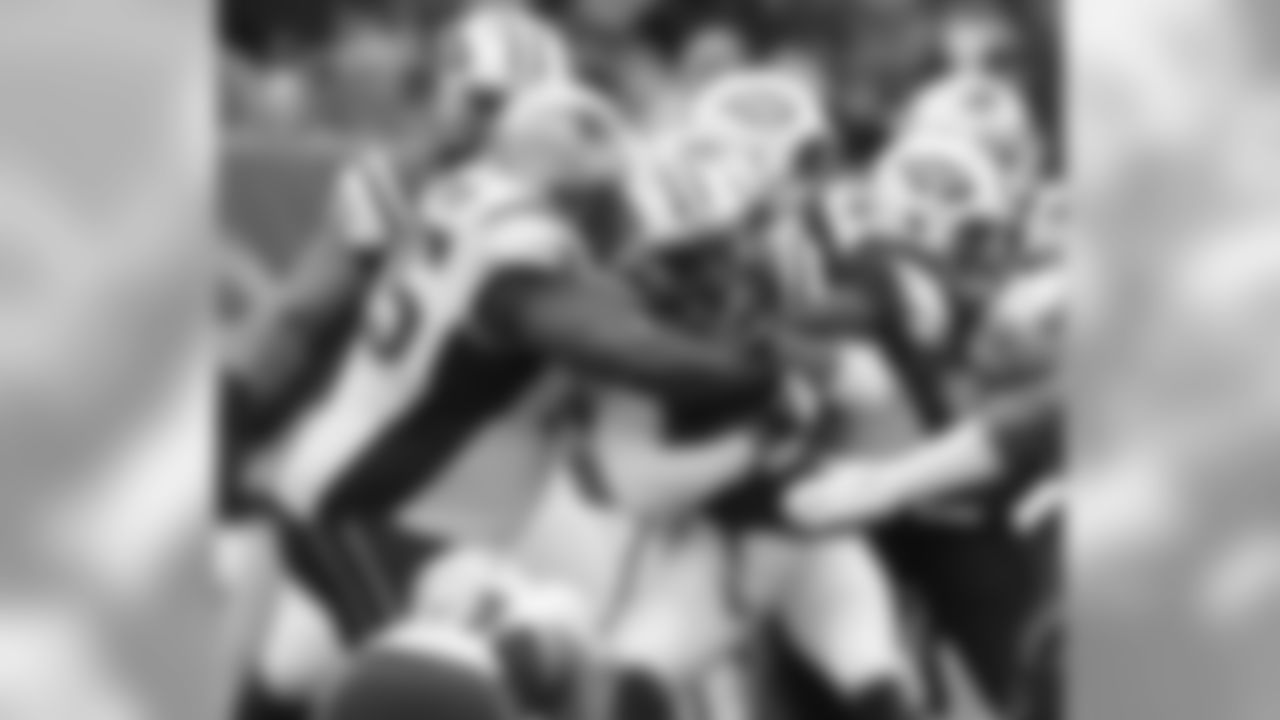
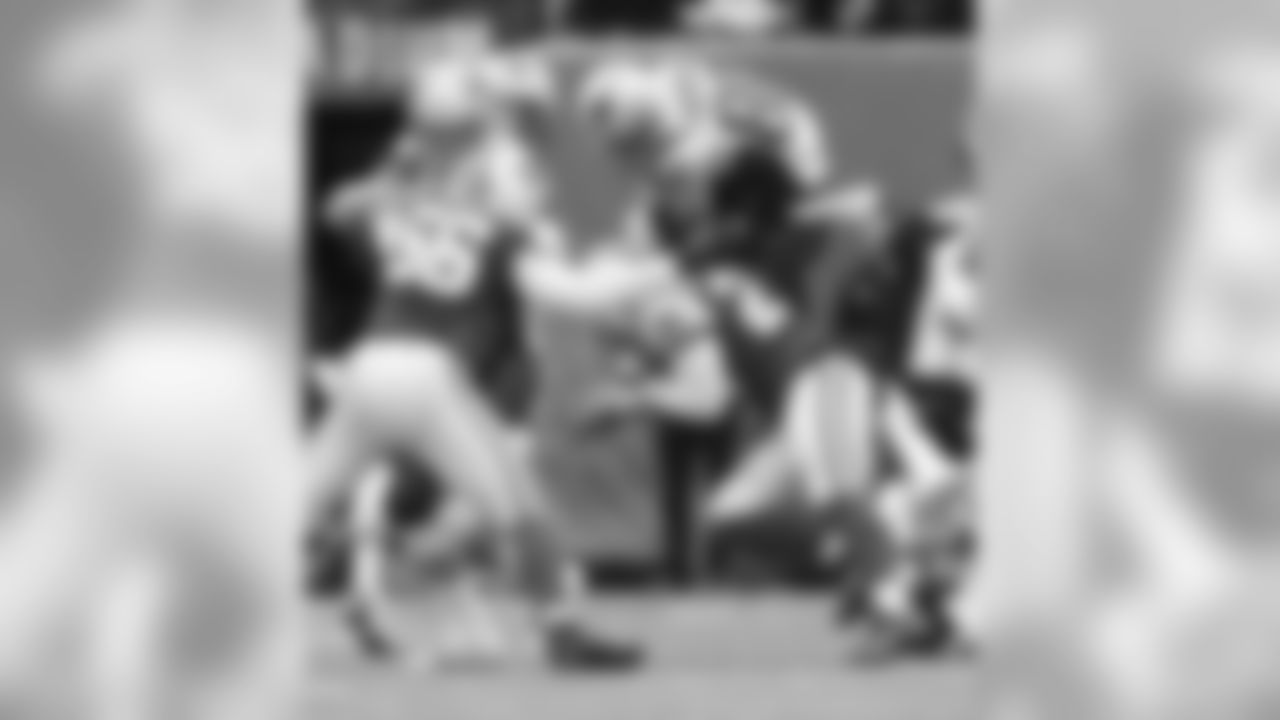
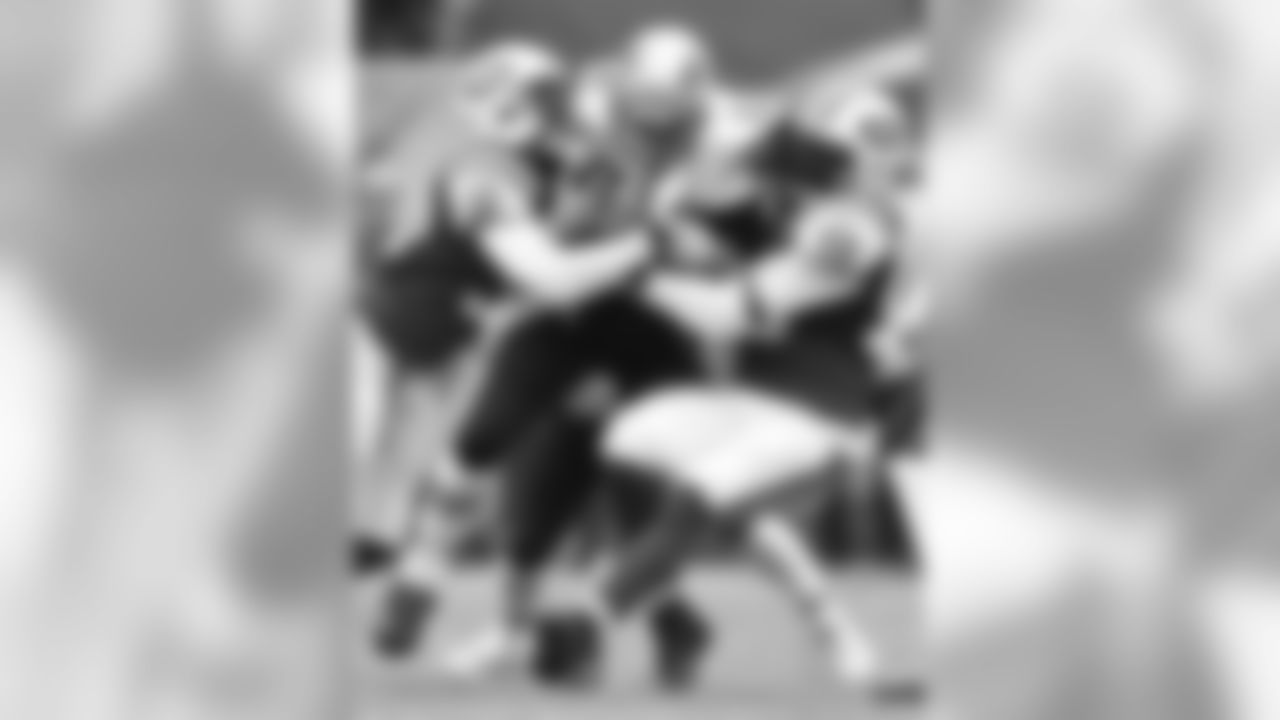
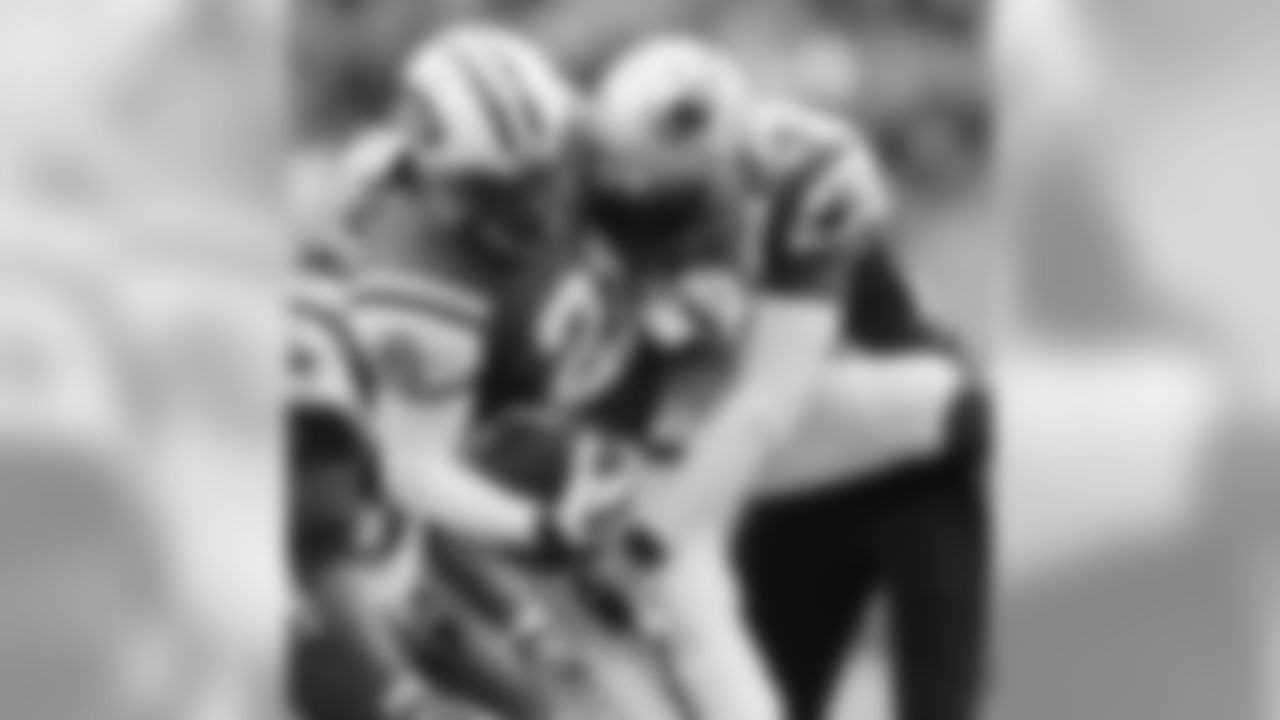

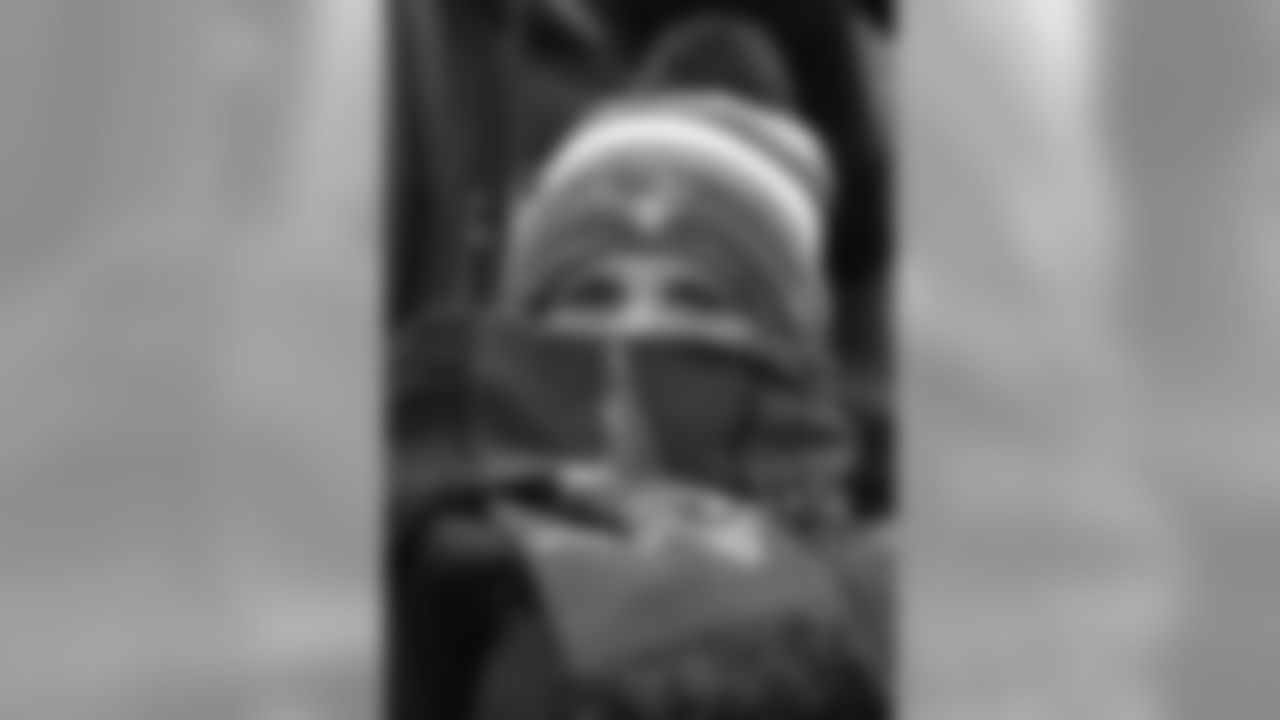

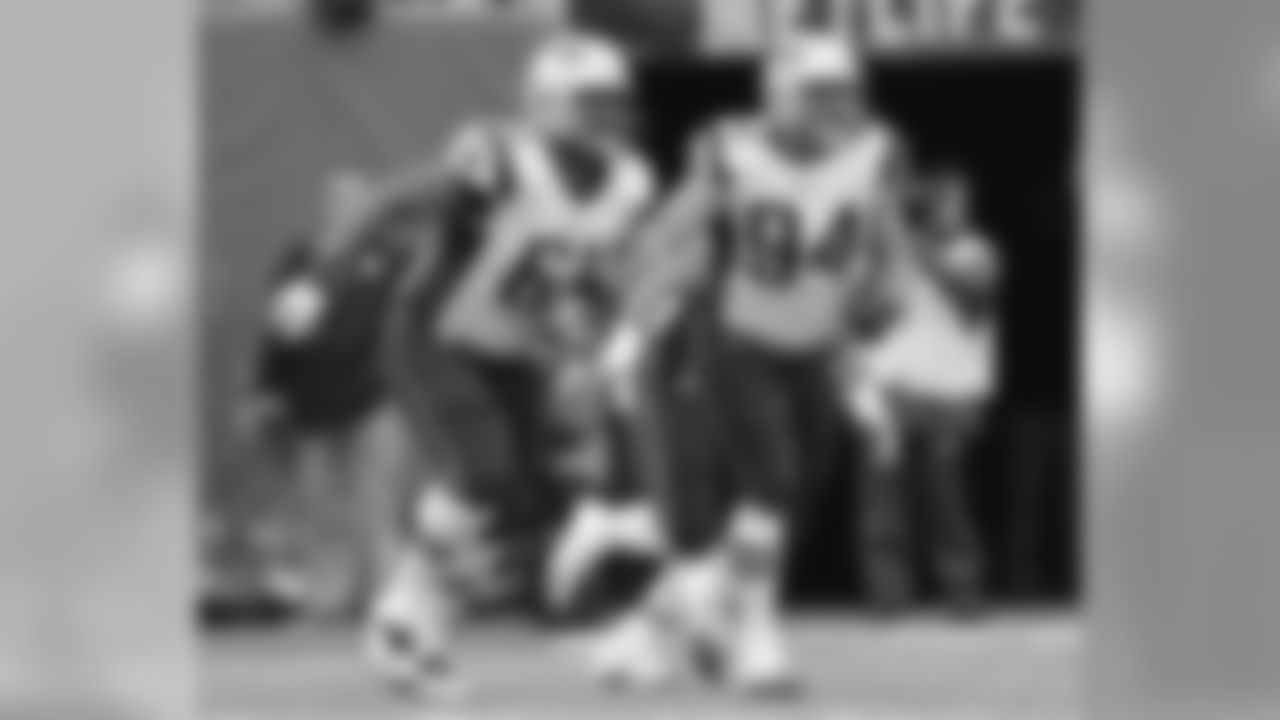
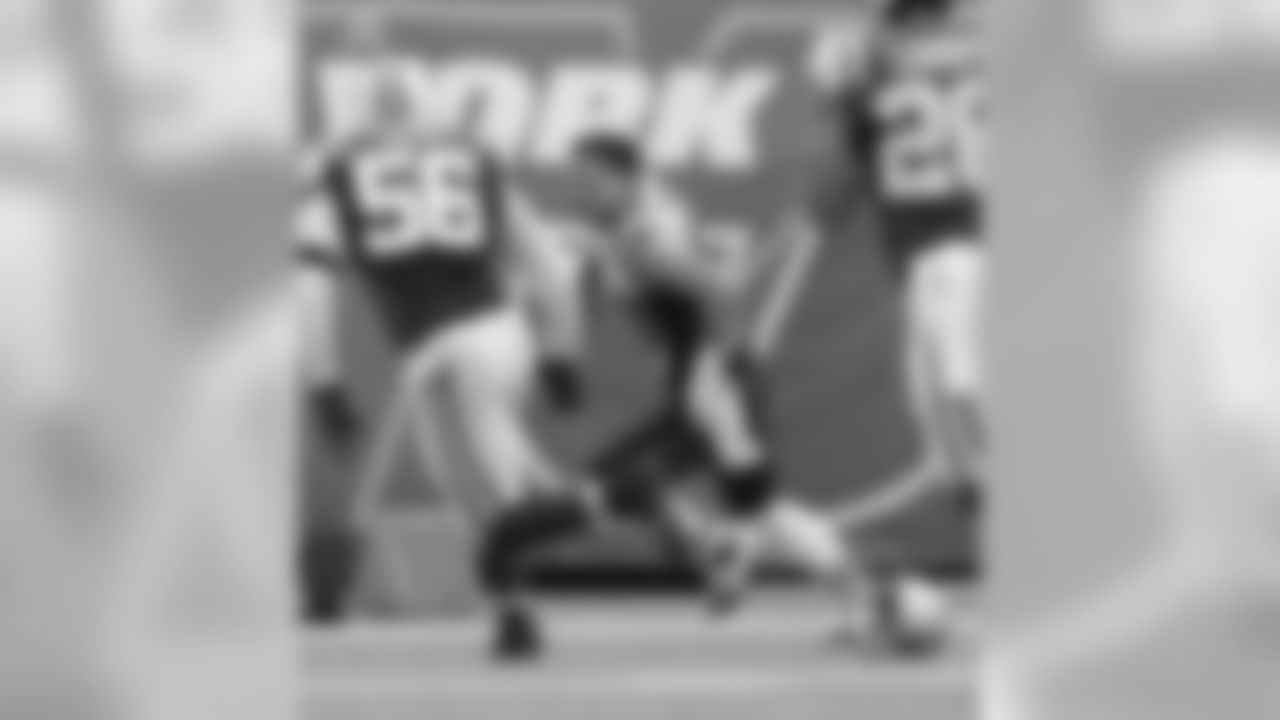
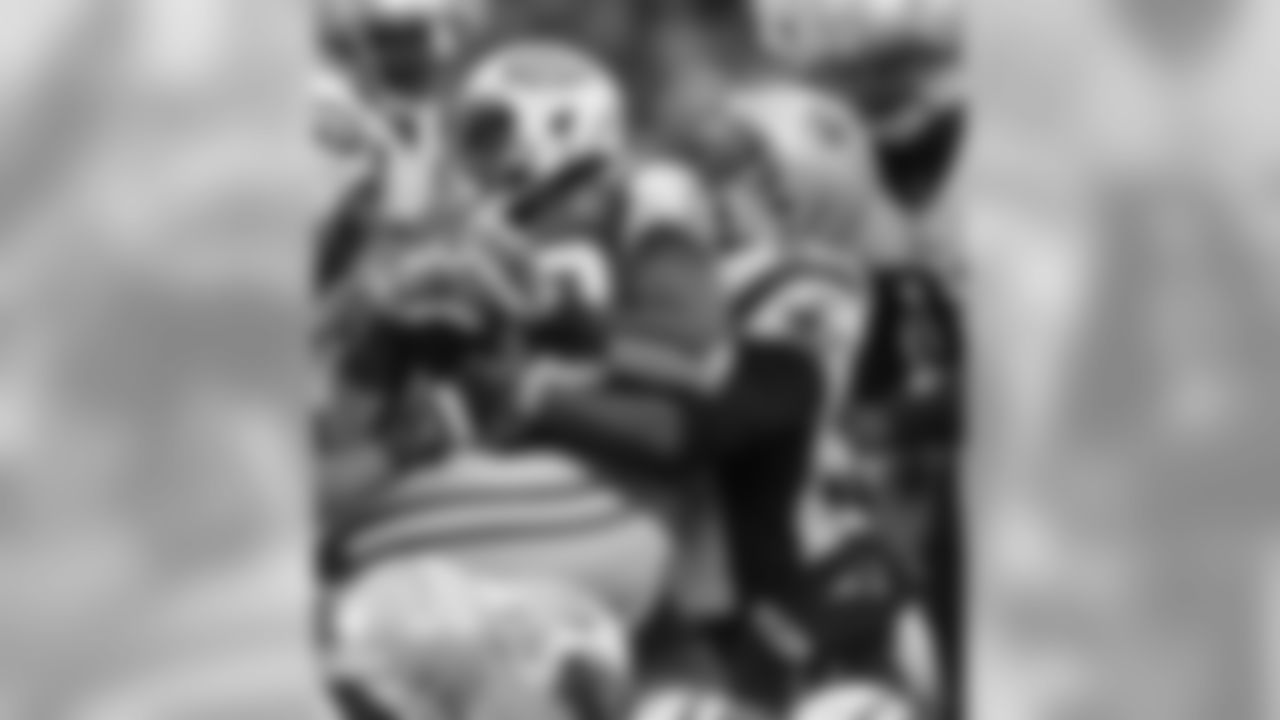
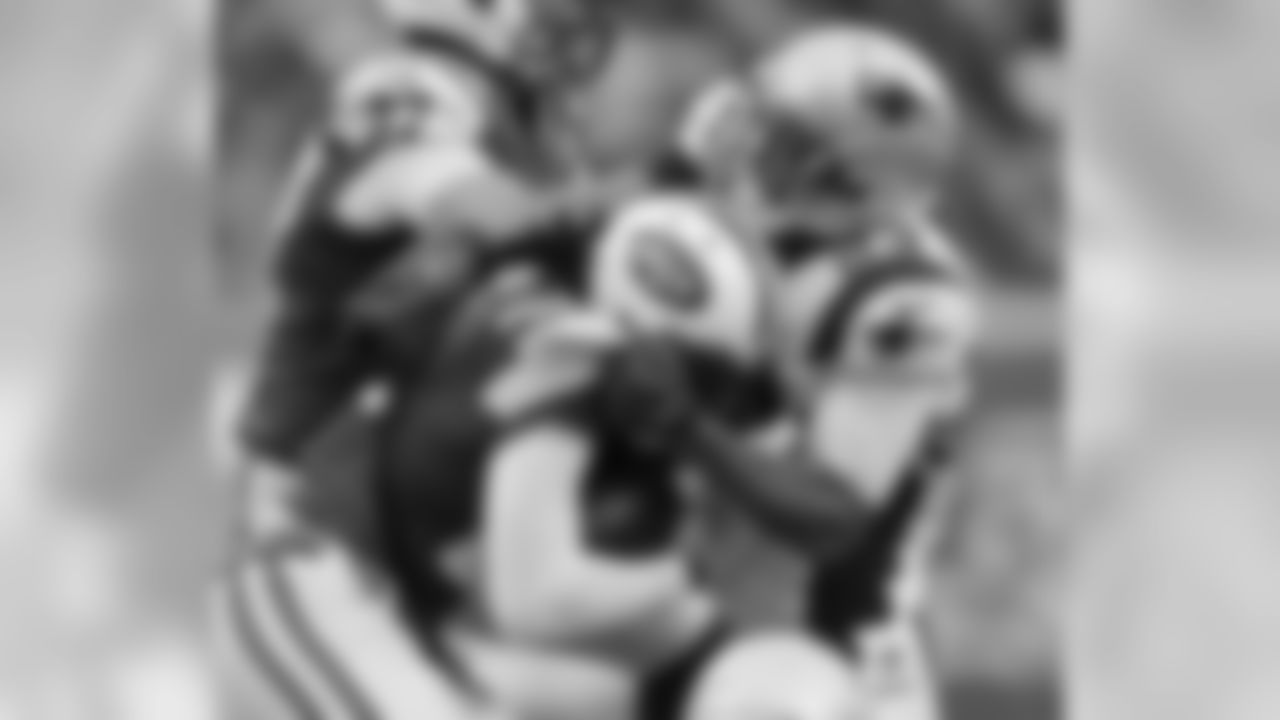

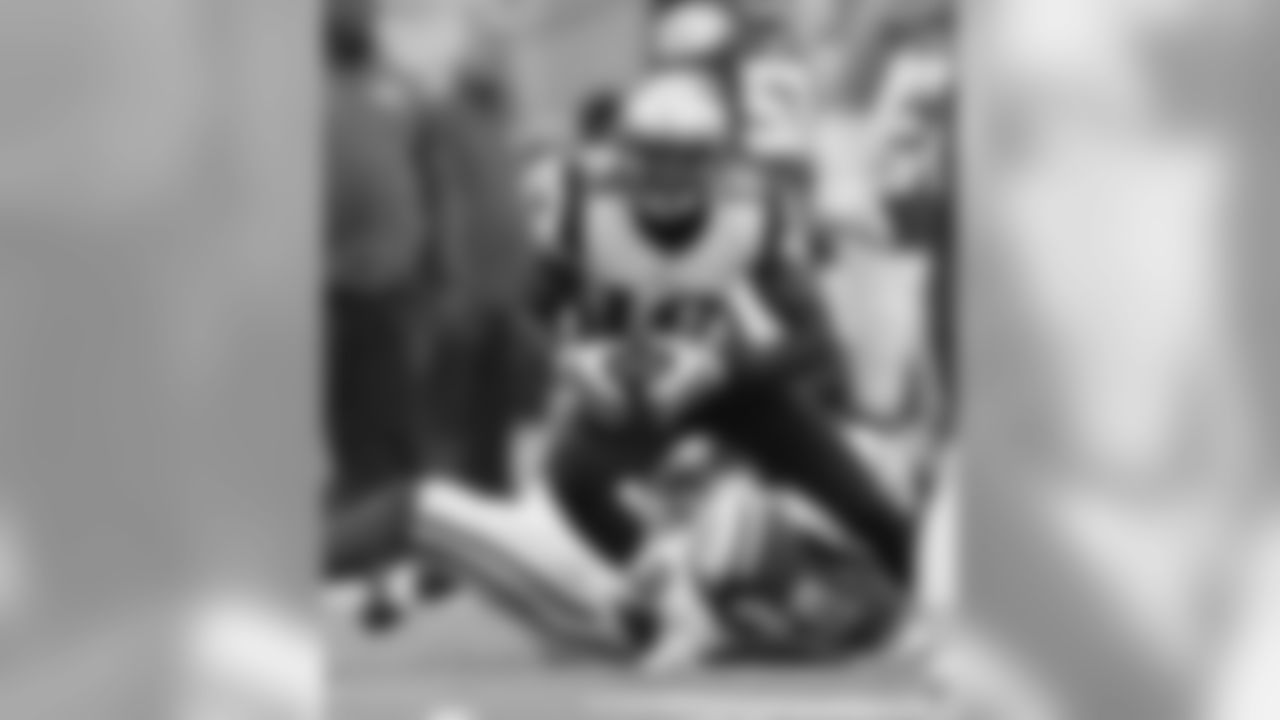

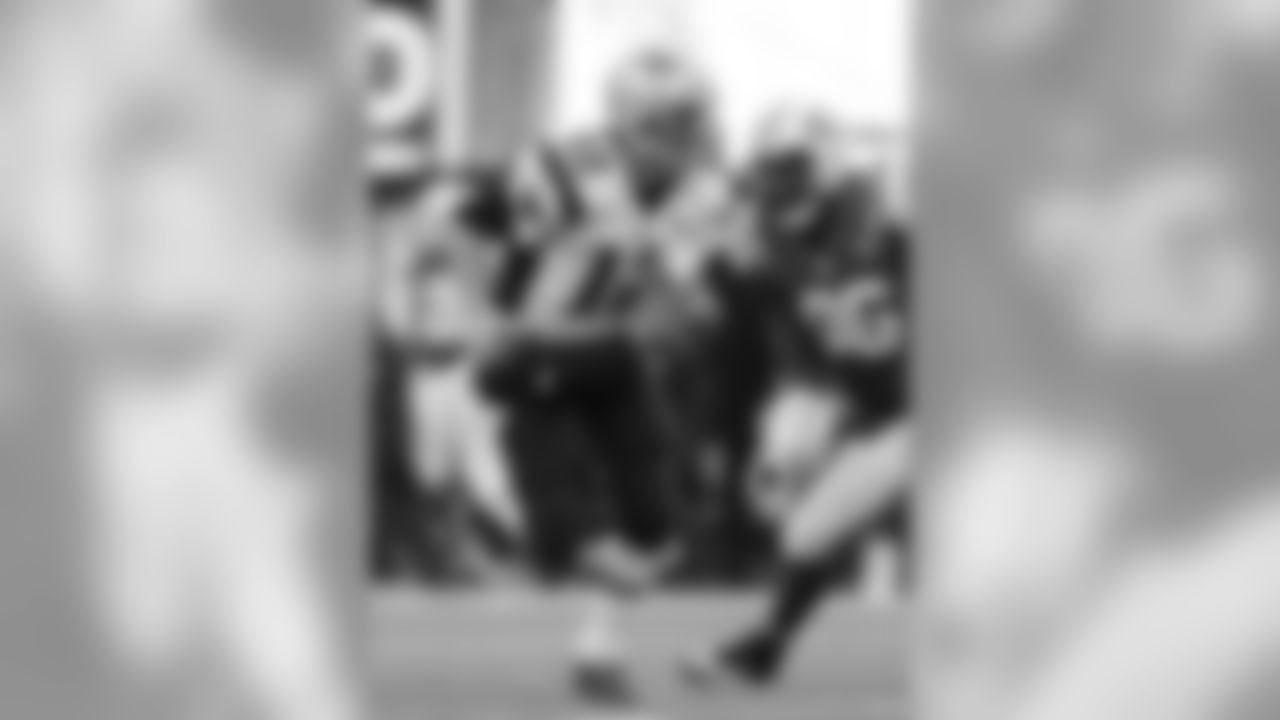

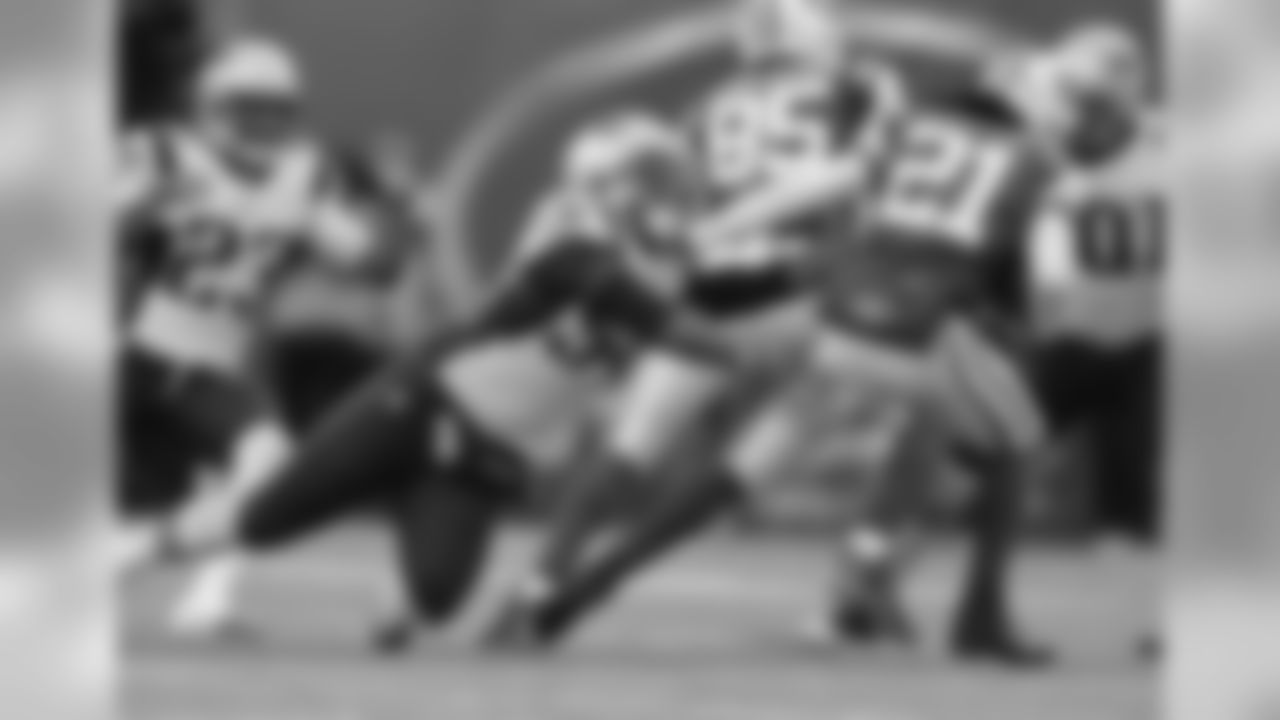
1993 - Drew Bledsoe, QB
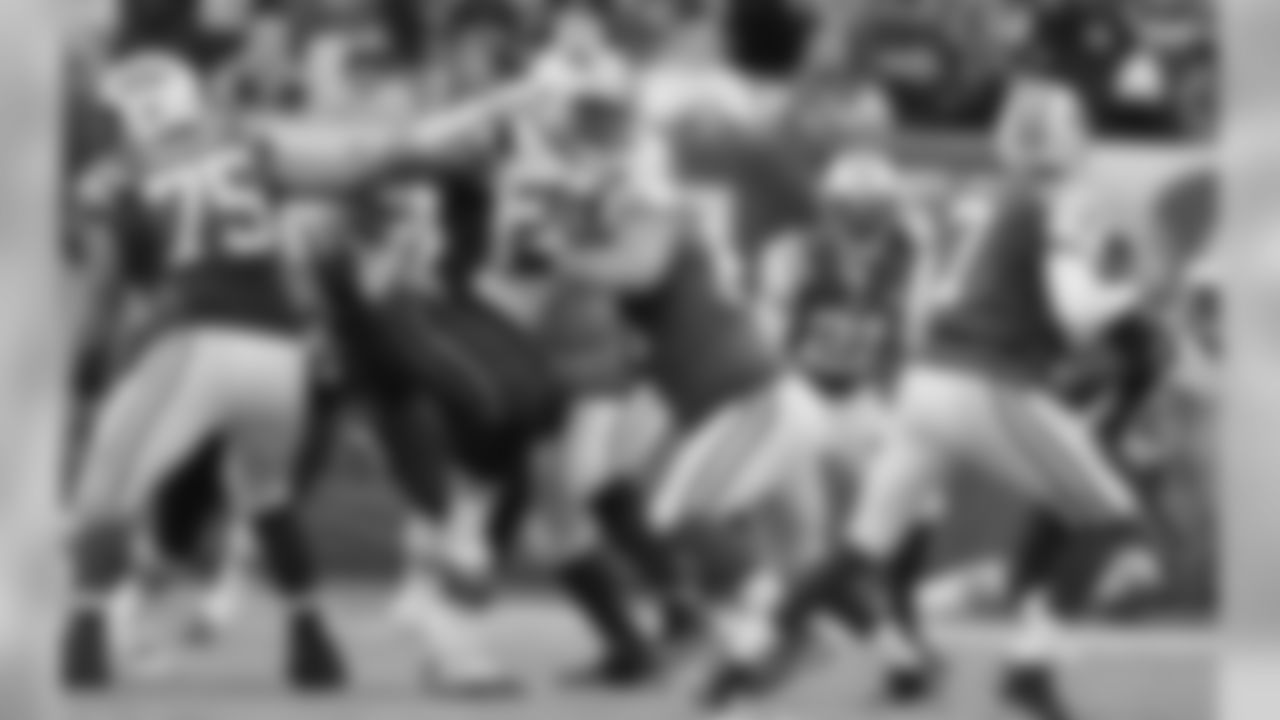
1993 - Troy Brown, WR
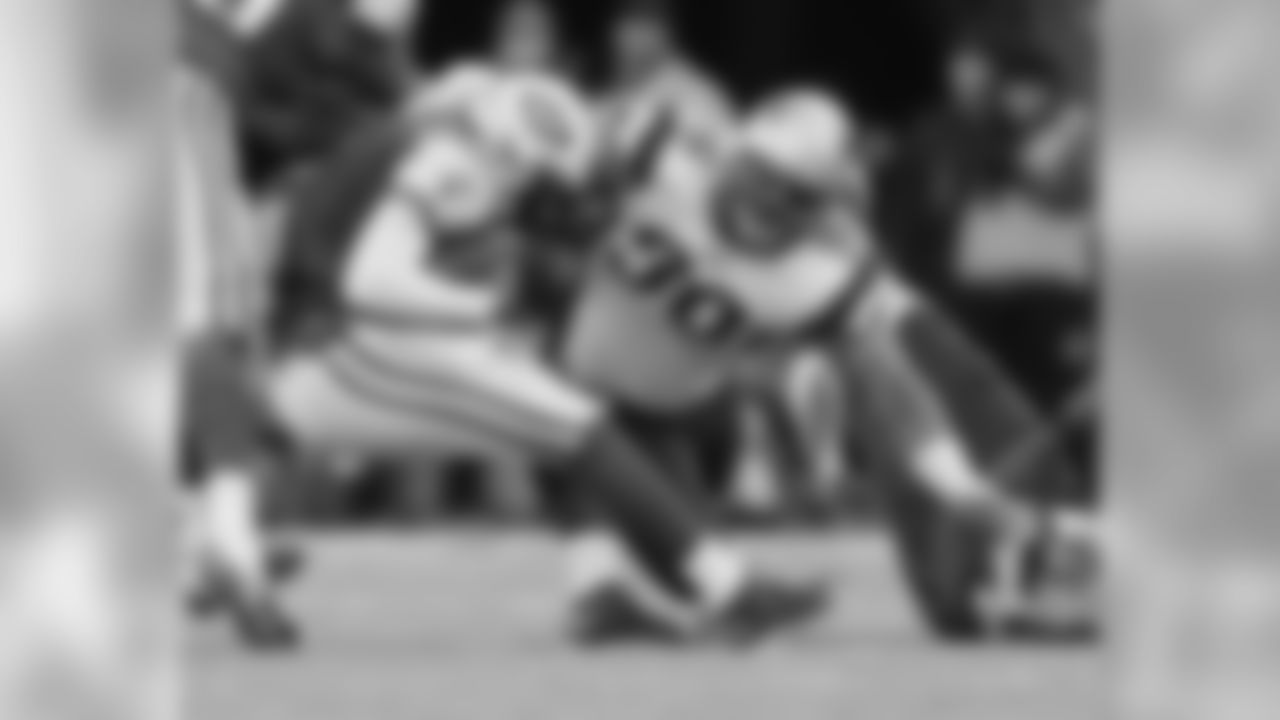
1994 - Willie McGinest, LB

1995 - Ty Law, CB

1995 - Curtis Martin, RB
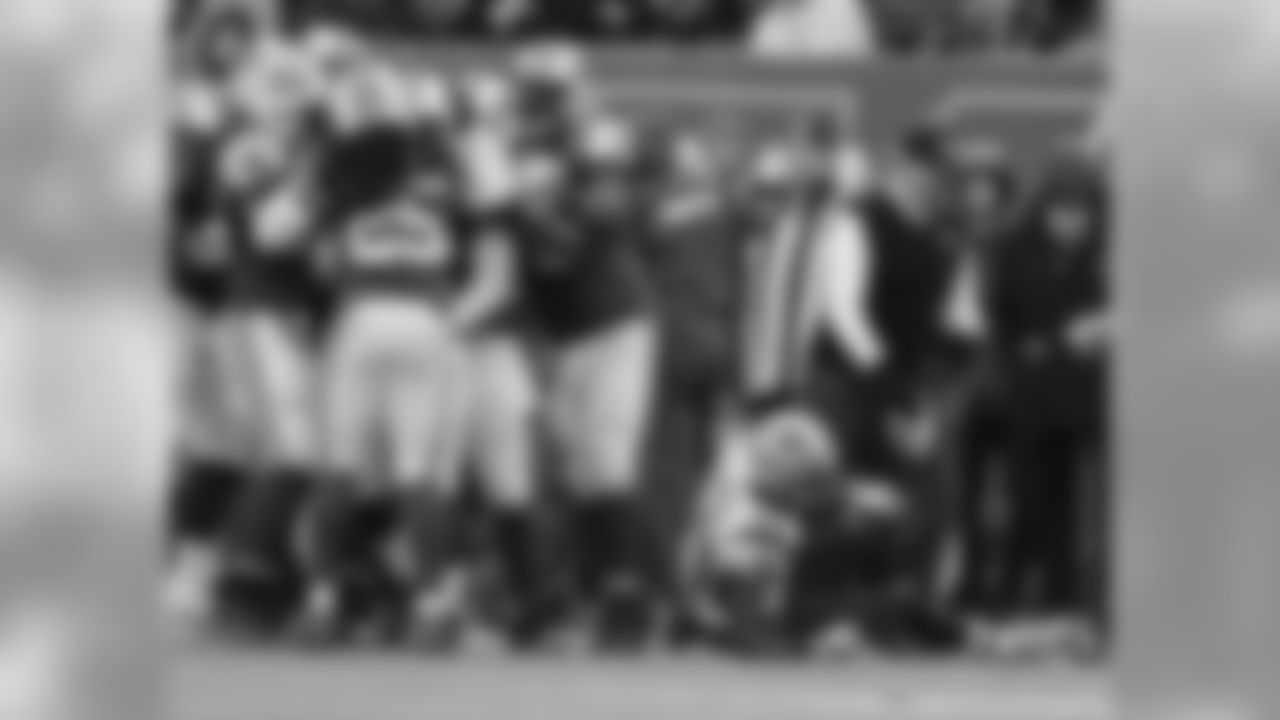
1996 - Tedy Bruschi, LB
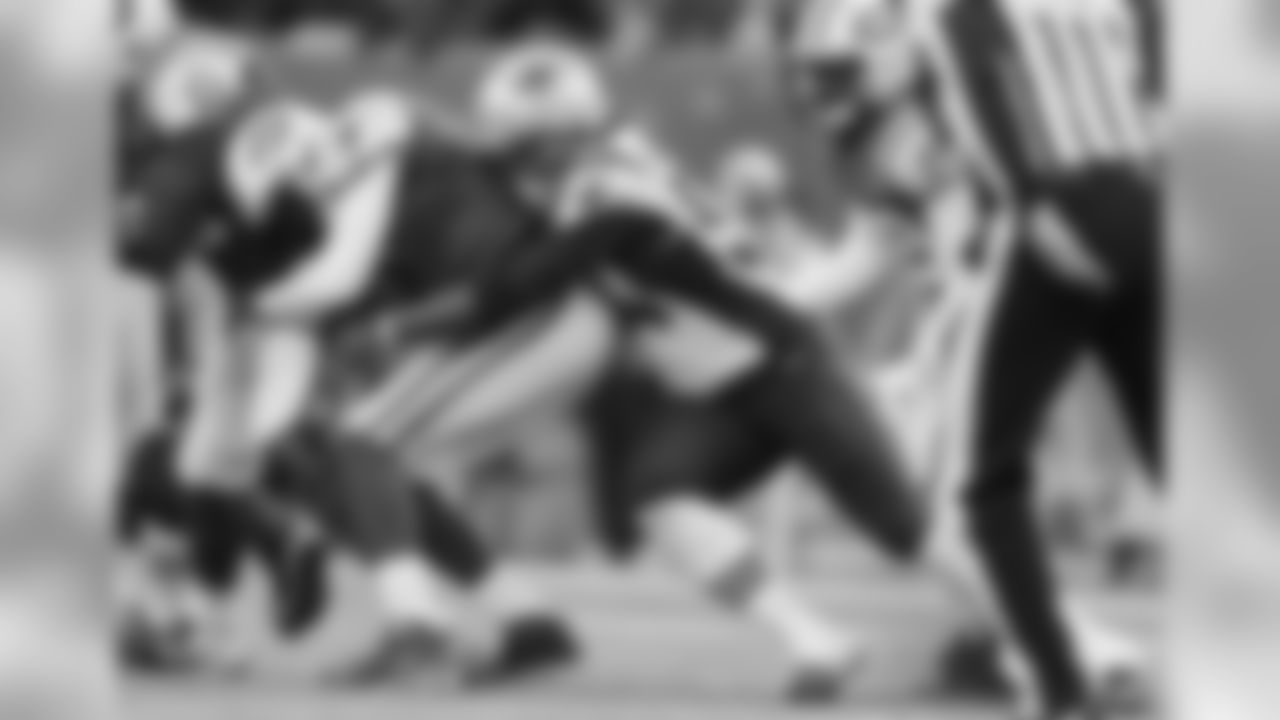
1996 - Lawyer Milloy, S

1999 - Kevin Faulk, RB

2000 - Tom Brady, QB
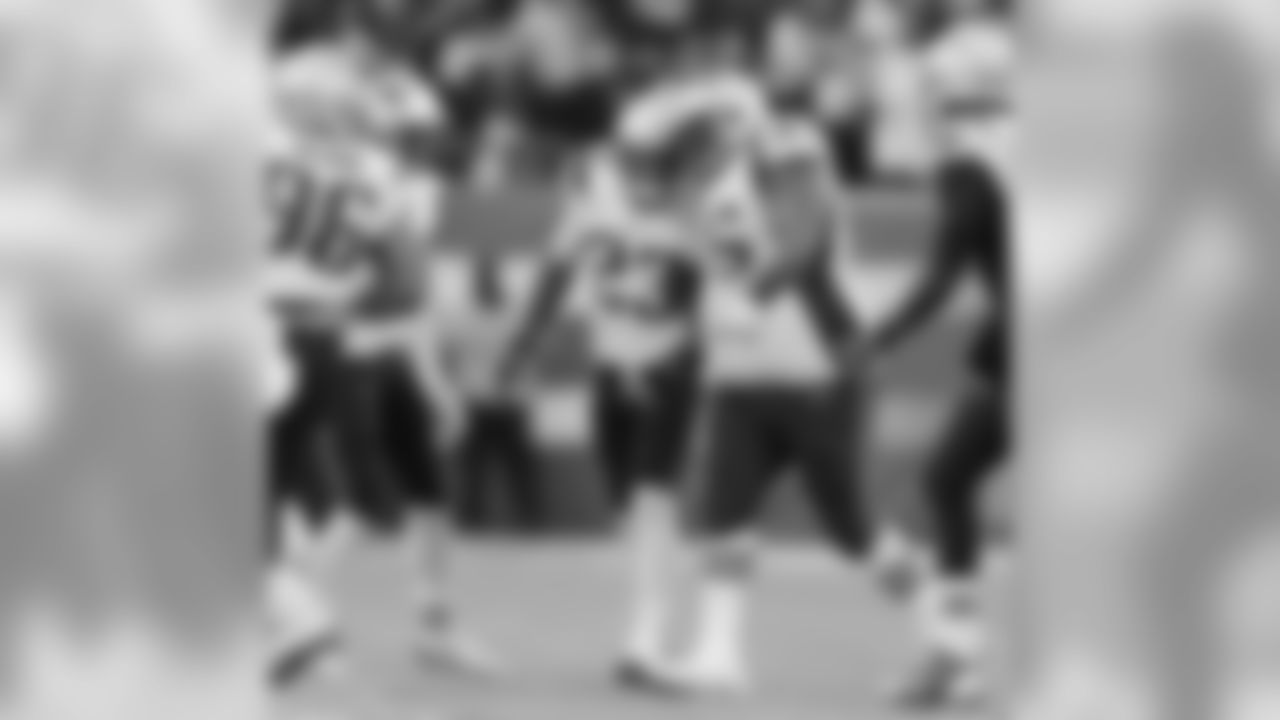
2001 - Matt Light, T
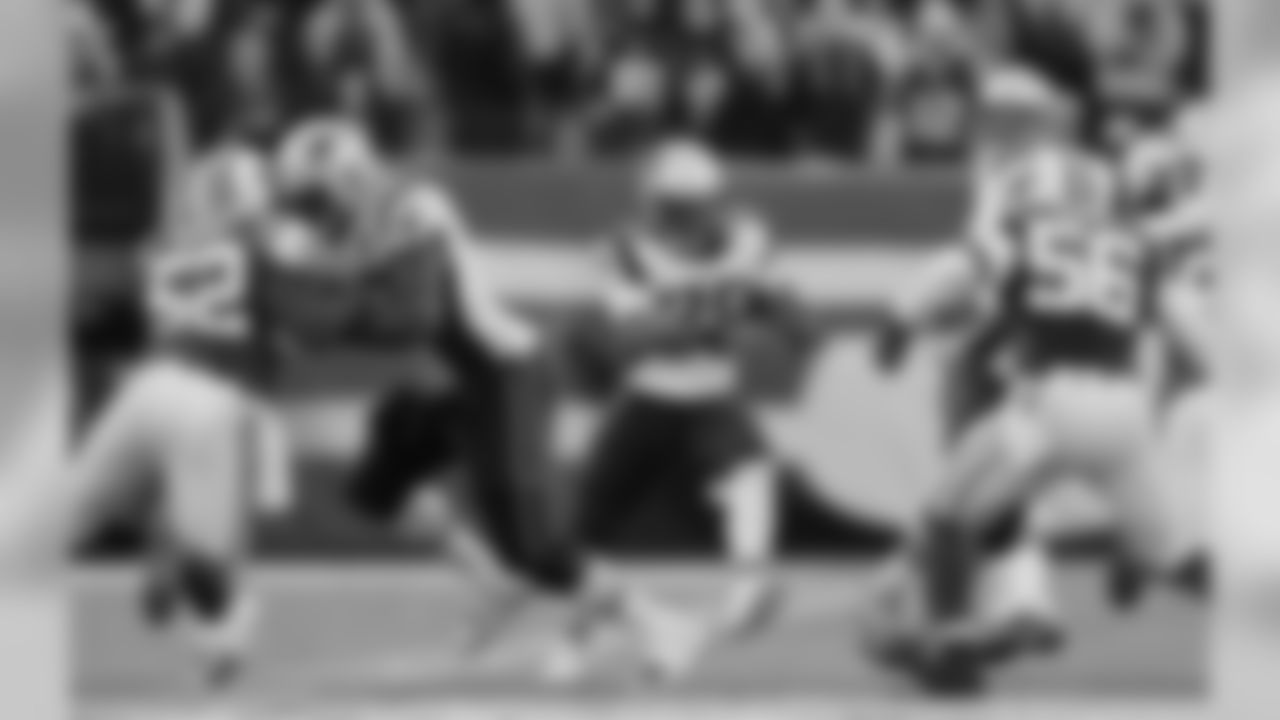
2001 - Richard Seymour, DL

2002 - Deion Branch, WR

2003 - Asante Samuel, CB
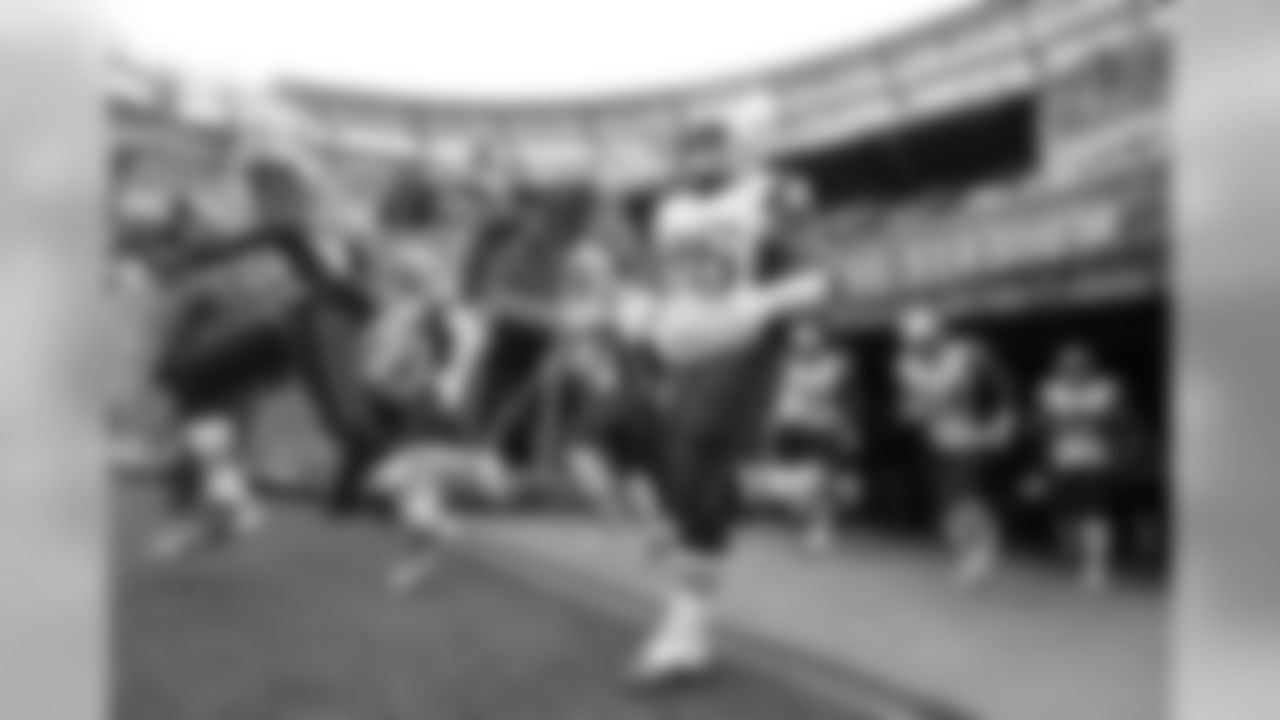
2005 - Logan Mankins, G

2006 - Stephen Gostkowski, K

2008 - Matthew Slater, WR
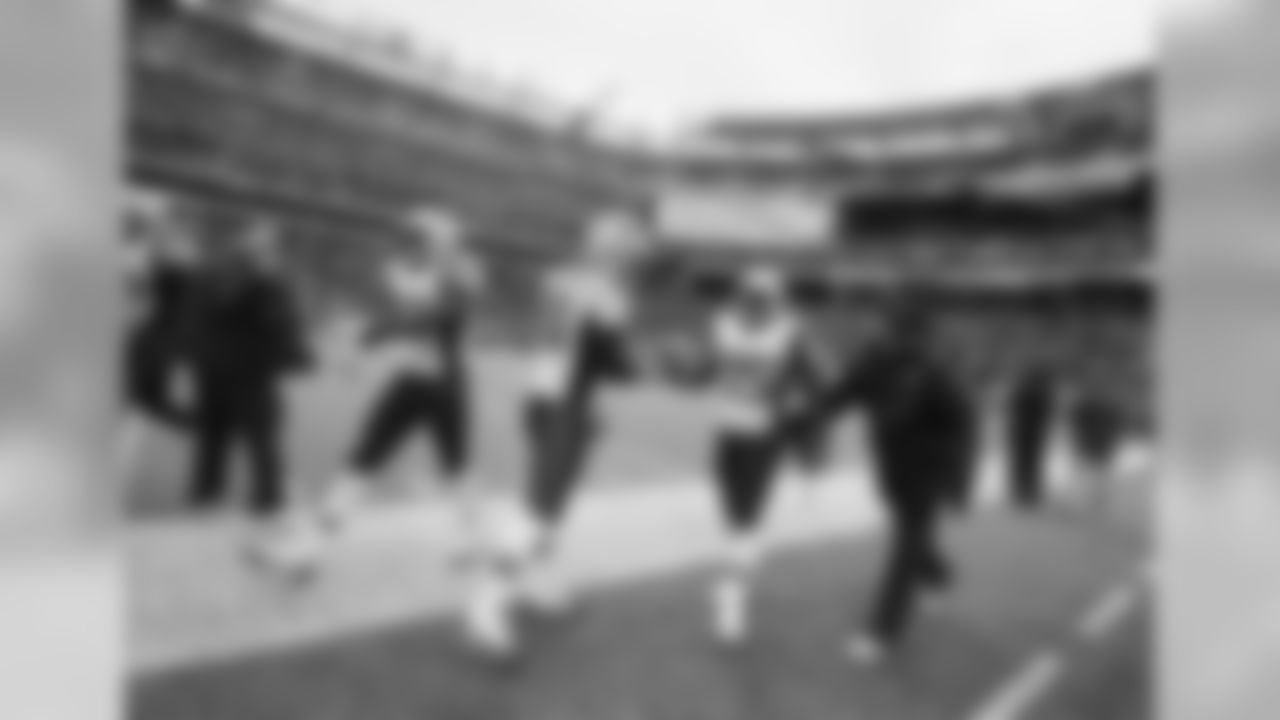
2009 - Patrick Chung, S
Q:** How did you like the look when Alan Branch, Vince Wilfork and Sealver Siliga were in there defending the run together?
BB: At times it looked good. There were other times it could have been better. We gave up some easy plays there in the start of the third quarter – just hand the ball off right up the middle for 15 yards. We had our moments. There are still a lot of things that we can and need to improve on.
Q: What did you think of Cameron Fleming's play and Marcus Cannon's movement on the offensive line?
BB: Same thing I said to [the] first question. There were times when we were OK, there were times when we weren't. You could put any player's name into that question offensively and the answer would be the same. We need all of our players to play better. We need our good players to play better. We need to do a better job of coaching. We need to do a lot of things better. Fifty yards of offense in the first half, that's not going to win many games. We were lucky to even be in the game.
Q: Back in training camp you said part of the extra tight end rotation is the resulting disruption on the line. Nate Solder was the one who came in the most in that role yesterday. Why did you feel Nate was the best player for that spot?
**
BB:** I'd say just due to a number of circumstances based on what our current situation is as we sit here playing a game on December 21, given the week we had to prepare for it and all the things that we had to, that were in place last week, we felt like that was the best thing to do.
Q: On Brandon Bolden's 17-yard run when you had both Cameron Fleming and Nate Solder in for that play, what is your take on what made that play work? Did Brandon make a read there at the end? It looked like there was a hole there for a second and he ended up bouncing it outside for the big gain.
BB: It was pretty much really the same play that we ran on the goal line the first time, not the touchdown play, but the one where [Jonas] Gray ran from like the two to the one [yard line]. It was that same play and the results were pretty much the same. On Gray's run, the one guy we didn't have blocked on that was [Dawan] Landry. Landry came up and made the tackle. We gained, I don't know, about a yard and got the ball down to the one or inside the one on first down, whatever it was. We had basically the same setup on that third-and-one play and Landry came up and saw it and Bolden, instead of running down into Landry kind of like Gray did, he felt that he could get outside and get to the edge and James Develin was kicking out their force player on that who was [Antonio] Allen and Allen just wasn't able to get outside and make the play. James did a good job of tying him up. Had Bolden cut the ball inside, Landry would have been there to make the tackle. Whether he would have stopped him for a yard or not, I don't know, [it] would have been close. Brandon thought he could get outside, which he did. Allen wasn't able to keep him or make the play, so Brandon turned the corner and turned it into a long run.
**
Q:** Was Rex Ryan's team ready? Are they really tough to coach against in terms of preparation and creativity? Was that just another example of how tough his teams are to coach against?
BB: Every team is tough in the National Football League. I think you can just look at the scores in yesterday's games or pretty much every game in the NFL every weekend. It's the NFL. We don't play Division I football and have a couple Division III teams on the schedule. They just don't exist. Every week is tough. I don't want to take anything away from them. They came out there, they competed well. In the end, we kind of made the plays that we needed to make in the fourth quarter to win and they didn't. But I didn't think we played particularly well, particularly on offense, until we made a few plays in the fourth quarter, but the turnover was a big play. We were lucky that didn't cost us. We were able to keep them on the edge of field goal range and not give up any points there. But that was a bad turnover. I don't think it was our best game by any stretch. I don't want to take anything away from the Jets, but we have and we'll need to play a lot better than we played yesterday.
Q: You guys clinched another first-round bye yesterday. Do you approach it any differently now?
BB: Our approach is going to continue to prepare and try to improve our level of performance all the way across the board: coaching, playing, running game, passing game, kicking game, everything. Just keep trying to work to get better. I think we'll need to play our best football – it will need to be ahead of us. That's what we'll try to prepare to do; to play well and continue to work on things that we need to work on so we can play better.
PATRIOTS OFFENSIVE COORDINATOR JOSH MCDANIELS CONFERENCE CALL
**
Q:** How do you decide when to use an extra offensive lineman as a tight end? Nate Solder held that role for the most part yesterday. How do you determine that he is the best guy for that job?
**
JM:** Each week is a little different based on the matchups. The Jets have a very good front, big guys on the edge plenty of the time, so you just look at what you can do to put your personnel in position to be successful so that you can run effective plays on offense. We've used different guys, obviously, throughout the course of the season. [Cameron] Fleming has done it. [Josh] Kline has done it. Obviously, Nate [Solder], Marcus [Cannon] has done it at times as well. We felt good about all our tackles that we put in the game, so when Marcus is in there, we have confidence in him, so when Nate goes to the tight end position and Marcus comes in at tackle, we feel like we've got good players at a lot of spots. Part of the game plan was to go ahead and do some of that yesterday. We had some mixed results, but some production from it as well.
Q: When you're getting production from a certain look on the offensive line, are you tempted to do away with the rotation and stick with that look? How does the continuity of the offensive line impact your decision making?
**
JM:** Continuity is definitely important up front. Like I said, if we felt like the best thing to do is just to stay with status quo the entire game, then we will do that, which we have done that many times in the past. Again, yesterday, there is usually a specific purpose for what you're doing. You're not trying to do it just to do it. We're not in the business of rotating people just to put them in the game. So, we're trying to create some advantages for ourselves, and at the same time feel like we've got people who are very competitive in their roles out there on the field at all times. If it's not working, obviously you don't want to do too much of it. If it can give you some advantage and some production, then it's worth considering each week.
Q: How do you think Marcus Cannon and Cameron Fleming played yesterday?
**
JM:** We didn't have our best day in total on offense. I don't think anybody played or executed or coached particularly well, starting with me. I think there were definitely some things we did well at times, and certainly the Jets gave us some issues. They have a good defense, a good front and a good scheme. They're well coached. They deserve credit for creating some issues for us, and at the same time we feel like we can coach and play better. That onus is on us. We've got to do better, and hopefully we can do that going forward.
Q: Looking at the film, what did the Jets do to limit Rob Gronkowski's impact on the game?
JM: There were a few times that they did – some specific things schematically, double teamed him a few times, put two people on him at the line of scrimmage I would say a handful of times. But most of the time they just played their defense. Like I said, they've got a good group over there. They did a good job. Part of our issues were in protection. Part of our issues were just our overall execution of the passing game, ability to get open, throw and catch the ball. And then there were plenty of times where they did a good job of just defending us. I don't think they did anything that we haven't seen before, certainly didn't do it for that many snaps. Overall, they played better than we did. Our guys fought and battled, and we made some plays in some critical situations to help us win the game, but we definitely can do better than that.
**
Q:** I guess it's going to sound obvious, but I'll check anyways. When a guy like Rob Gronkowski doesn't get a free release, I assume it's imperative for the offense line to protect and hold up to give him extra time to get into his route. Is that correct?
JM: Protection is obviously important in any pass play, whether it's a quick throw, a deep throw, an intermediate throw, tight ends, receivers, whatever the design is, you need to do a good job of protecting. You need to read the play the right way, you need to run good routes and create separation. There are a lot of things that go into a good passing game. Protection is certainly one of them, but there are many facets to that. Many times, when you put somebody at the line of scrimmage trying to take somebody away defensively, offensively we need to do a good job of seeing that and we need to go somewhere else with the ball. That's why it's imperative for all our skill players that are out into the route to do a good job and expect the football each time they're in their routes. Like I said, there are a lot of things that go into the success and failure of a pass play, and we can execute all of those better than what we did yesterday.
Q: What went into the decision to go up-tempo in the third quarter yesterday, and how would you characterize its effect?

JM: Sometimes there are different advantages that you may be able to gain based on personnel, what we have in the game, what they have in the game, how easy or difficult it may be to communicate at that point in the game, or if it's a home game or a road game – that certainly affects that, to be able to go at that pace. And sometimes you do it just to try to kick-start something if you're having trouble sustaining drives or putting too many plays together. It's obviously something we have done well in the past at times, and I think it did help us and our guys did a good job executing on that series. We actually did it in a few more series than the one in particular you're referring to there – I think it was the second drive of the third quarter – I thought our guys did a good job of executing and communicating what we were trying to do quickly and playing as fast as we could.
Q: Going up-tempo on that drive also helped out the running game, which struggled in the first half. What was it about that series that got the running game going?
JM: We blocked them good on that series, gave the runner an opportunity to get started and found some space, and Shane [Vereen] made some good runs, and we did a good job of allowing him to get to the line of scrimmage and get through there and work on the linebackers and the secondary in some space. Anytime you're productive in the running game, it usually starts with keeping the line of scrimmage clean and allowing the running back to get to the second level, and I thought that happened a few times in that drive.
Q: I sense a little bit of disappointment in the tone from these calls with you and the other coaches. One positive note seems to be your four-minute offense. Could you touch on the success you had with that and your ability to close out the game? Looking ahead, how would you compare and contrast the defenses of the Jets and Bills?

JM: I thought the four-minute drive was big. We didn't do everything perfect in the four-minute drive, but I thought Danny [Amendola] came up with a couple real critical plays there to convert some third downs. We found some things we were able to do in our running game there and it gave us some positive yards and then gave us an opportunity to have that third-and-one, third-and-one-and-a-half there at the end to try to close the game out. I thought Brandon [Bolden] ran well in that situation, in that series. We just executed the things that we were trying to do. We wanted to try to finish the game on offense once we got it back with 5:16 to go. The guys did a good job of executing and overcoming – I think we had a false start penalty and overcame a long-yardage situation to convert and then found a way to finish it there with the running game at the end, which I thought was really good. The Bills and the Jets, obviously they're very good defenses, both of them – physical, good defensive fronts, both of them. The Bills certainly have their own style, play their own type of system. Coach [Jim] Schwartz does a great job of having them prepared each week. They'll throw some new wrinkles at you each week. They'll play their base stuff, and they play really well. They know what they're doing. They know their adjustments. They're rarely out of position, and they force you to make a lot of good plays in order to beat them against a lot of good players, and certainly they're well coached. It's a different challenge in terms of style and what we're going to see in terms of the spacing of the front and the type of pressures and those types of things that we'll see, but nonetheless it's going to be a huge challenge. This is one of the best defenses we play all year.
Q: Going back to the up-tempo decision, did the uncertainty around Dan Connolly inhibit your judgment to maybe do more up-tempo because there was some uncertainty there? Did that play into it?
**
JM:** No. We're confident in that type of offense if and when it's the right thing to do or we choose to do it with all our players. They have all [repeated] it many times. They all know what we're doing when we do it, so that really didn't have an impact on that.
Q: Tom Brady said after the game that he thought there were communication issues when the Jets were able to get pressure. Do you feel like the number of changes that were made to the offensive line yesterday contributed to the communication issues?
JM: Like I've said before, there are a lot of things that go into good pass protection. There was more than one issue yesterday in terms of protecting the quarterback. We had issues in the front, we had issues at tight end, [and] we had issues at running back. So, the issues aren't just in one spot. I think the solution is definitely an execution thing, and it's our responsibility as an offense, as a coaching staff and all our players, each one of us needs to do our job on every play, and when we do, then usually we have an opportunity to make a good play. And whenever you don't have solid pass protection or room to run in the running game or pass protection or whatever it may be, usually that's a result of lack of execution or sometimes at times being beat physically by another good player. So, a lot of things go into it, some of which is communication based, some of which is physical, some of which is just technique, fundamentals and execution. There are a lot of things that we can certainly do better, and we're going to work hard this week to try to improve in some of those areas and play better than what we did yesterday.
PATRIOTS DEFENSIVE COORDINATOR MATT PATRICIA CONFERENCE CALL
**
Q:** After the game Bill Belichick was complimentary of the call that you made on Dont'a Hightower's sack in the fourth quarter that preceded the field goal attempt that Vince Wilfork got his hand on. He said it was a different look that you had shown up to that point. Can you take us into your mindset at that time that led you to call that based on the factors that had played out leading up to that point?
MP:Well, I just think obviously the situation of the game, just our guys really kind of trying to understand where the ball was, what the situation was, the field position, obviously all of it was very critical. So really just those guys doing a great job on the field of making the play work and making it go. I think it was just a complementary play of coverage and rush, and communication. So I thought that was all good and fortunately for us it came together on that particular play. Certainly a lot of plays out there, we need to do a better job of all of that and really trying to improve so that we're more consistent with everything that we're doing. It was a good job by those guys out on the field to really get everything executed from a communication, coverage and rush standpoint.
**
Q:** To follow up on that, how hard is it to synchronize some of that movement that you see there? From Wilfork and Chris Jones shifting late and Hightower and Jamie Collins playing off of that movement, how hard is that to synchronize that type of action before the snap?
MP:It's obviously just something we work on from really starting back in the spring; those guys just playing together. Again, they do a great job of communicating and understanding what we're trying to get done and working really hard to make sure they do that. So it's something that we do in a lot of different facets – it's obviously just not that particular call – but a lot of different parts of the defense. I think defense in general requires a lot of communication and a lot of coordination and that's really all we're doing right there.
Q: What was your assessment of Logan Ryan's play and how the secondary played in general?
MP:I think in general we'll go back to the film and take a look at it and there are obviously a lot of areas that we need to improve on and we need to play better. Play better and coach better and just overall just be better as a defense. I think it's an overall thing, I think it's every position. [We'll] get a chance to take a look at how we performed. As a defense as a whole [we've] just got to make sure that we do a better job of playing every single play up to our full ability. So that's really how we look at it. We're trying to improve; we're trying to get better. We obviously have to do that and we have to keep working hard to get better.
**
Q:** How did you see Jamie Collins' interception come to be?
MP:Obviously it's a play that we are trying to make on defense. We're trying to get the ball as much as we can. Really I think it's a combined play of coverage and rush across the board, tight coverage by everyone there and the quarterback obviously trying to get the ball to his read and makes the throw. Jamie was just in good position with help and had a chance to go up and catch the ball which obviously is critical for us to complete that kind of situation and come down with the ball and try to get the ball back to our offense. So it was a good play, it's what we're trying to do in the passing situation – be on the receivers, be on the them tight and be able to come down with the ball when that opportunity presents itself.
Q: What is your assessment of the way Vince Wilfork is moving? Is his agility and athleticism as good as it's been in recent memory? How much of that is reflective of the way you've managed his snap count in the last few weeks?
**
MP: **I think first and foremost understanding Vince and what a great player he is and a great leader and a great work ethic that he has. I think everything that Vince does starts at the beginning of the week and builds towards Sunday. His preparation week-in, week-out and the way that he approaches and the mannerism and the professional in which he attacks the game is outstanding. It's a great example for the rest of our players, defensively and offensively, to look at and it's really something that's great from my standpoint to be able to point to and say 'Hey, this is how you work; this is how you get better.' Vince has been around long enough to understand the season and the grind of the NFL season and how important it is to improve every week and try to pick your level of play up each and every week and standpoint of the season. He's really tried to do that. So I think he's obviously a veteran guy that understands that NFL and how the process is. I think he's doing everything he can possible to do that every week. It's just a great testament to his work ethic, his professionalism, his study of our opponents and that really starts during the week.
**
Q:** Bill Belichick referenced the interception in the fourth quarter by the Jets. It was 17-16 and the pressure was on. Was there anything in your mind that you needed the defense to do? I know it's play by play, and reads and it's very involved. Was there anything in terms of your general approach in stopping them at that point in the game that you needed to relay to the defense?
MP:I think you really answered it as far as our approach. The situations that occur on the field don't really matter to us defensively. We just have to go out and do our job. I think we just have to understand the situation, execute it play by play like you said and try to do the best job that we can to finish that particular play and then move on to the next one and handle the situation that arises from that previous play. So for us, it's just we have to go out on the field and do our job and whatever the circumstances are, they are. It doesn't really matter to us. We're just always going out there – whether it's the first play of the game or the last play of the game – we're going out there trying to stop the offense, trying to get the ball back to our offense and trying to play good, sound defense. So that's our mentality all the way through.
Q: Did you think you were having a good enough game to be able to rise to that challenge?
MP:I think we go out on the field every single play [thinking] that we're going to rise to the challenge. I mean that's our job. Whatever happened in the previous plays, we've got to move forward and handle the next play. There are certainly a lot of plays on film and in the game that we need to do a better job of, and that's what we're looking at and that's what we're going to try to improve on and work towards for next week. So we're certainly trying to get better and improve on the things that we didn't do well.








































